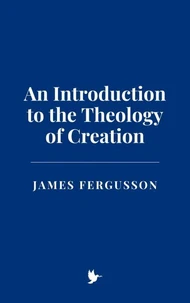The Nouvelle Théologie movement, primarily articulated through the works of theologians such as Henri de Lubac, Yves Congar, and Jean Daniélou, reshaped Catholic thought in the 20th century and laid the intellectual foundation for many of the reforms of the Second Vatican Council. This theological movement, which sought a return to the sources of Christian faith-ressourcement-rejected the overly scholastic approaches of the 19th and early 20th centuries in favor of a more dynamic engagement with Scripture, the Church Fathers, and the historical development of doctrine.
Nouvelle Théologie also advocated for a Church that was not only doctrinally sound but also deeply engaged with the modern world and responsive to its existential questions. This study traces the contributions of these theologians to the key developments of Vatican II, particularly in areas such as ecclesiology, liturgy, revelation, and interreligious dialogue. Through their work, the Church's understanding of itself as a communion of believers, its role in the world, and its relationship with other Christian traditions and religions were profoundly redefined.
Theologically, the focus on grace, the supernatural end of humanity, and the eschatological dimensions of the faith highlighted the Church's mission not merely as a doctrinal institution but as a sacrament of salvation for the whole of creation. Following Vatican II, the ongoing influence of Nouvelle Théologie was pivotal in framing the Church's post-conciliar efforts in evangelization, particularly through the concept of the New Evangelization proposed by Pope John Paul II.
The movement's insistence on a Church deeply attuned to the modern world, while remaining faithful to its theological and sacramental heritage, continues to inform the Church's mission and self-understanding in the 21st century. This work provides a deep analysis of the theological currents within Nouvelle Théologie, its reception at Vatican II, and its continuing impact on Catholic theology and pastoral practice today.
The Nouvelle Théologie movement, primarily articulated through the works of theologians such as Henri de Lubac, Yves Congar, and Jean Daniélou, reshaped Catholic thought in the 20th century and laid the intellectual foundation for many of the reforms of the Second Vatican Council. This theological movement, which sought a return to the sources of Christian faith-ressourcement-rejected the overly scholastic approaches of the 19th and early 20th centuries in favor of a more dynamic engagement with Scripture, the Church Fathers, and the historical development of doctrine.
Nouvelle Théologie also advocated for a Church that was not only doctrinally sound but also deeply engaged with the modern world and responsive to its existential questions. This study traces the contributions of these theologians to the key developments of Vatican II, particularly in areas such as ecclesiology, liturgy, revelation, and interreligious dialogue. Through their work, the Church's understanding of itself as a communion of believers, its role in the world, and its relationship with other Christian traditions and religions were profoundly redefined.
Theologically, the focus on grace, the supernatural end of humanity, and the eschatological dimensions of the faith highlighted the Church's mission not merely as a doctrinal institution but as a sacrament of salvation for the whole of creation. Following Vatican II, the ongoing influence of Nouvelle Théologie was pivotal in framing the Church's post-conciliar efforts in evangelization, particularly through the concept of the New Evangelization proposed by Pope John Paul II.
The movement's insistence on a Church deeply attuned to the modern world, while remaining faithful to its theological and sacramental heritage, continues to inform the Church's mission and self-understanding in the 21st century. This work provides a deep analysis of the theological currents within Nouvelle Théologie, its reception at Vatican II, and its continuing impact on Catholic theology and pastoral practice today.

 , qui est-ce ?
, qui est-ce ?